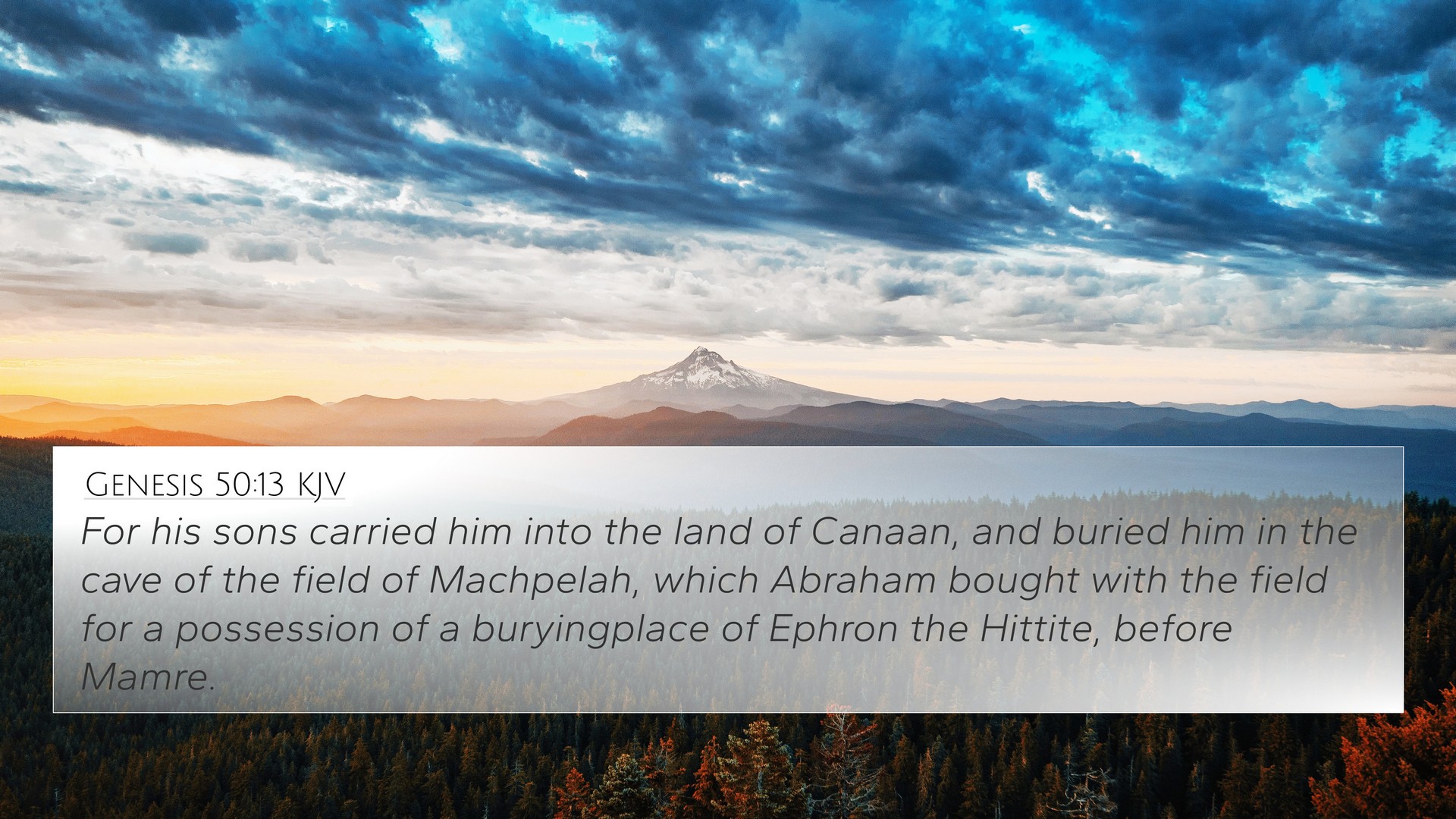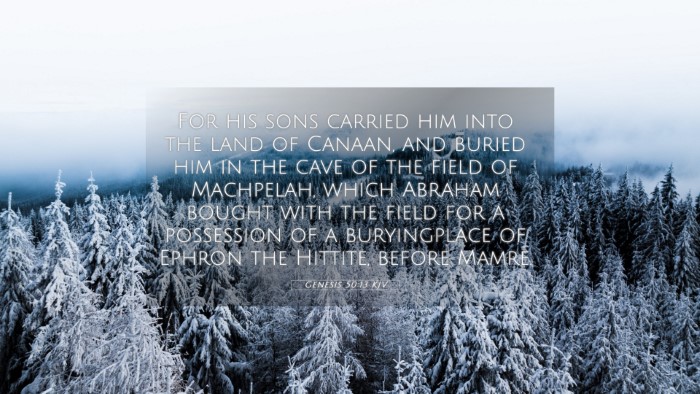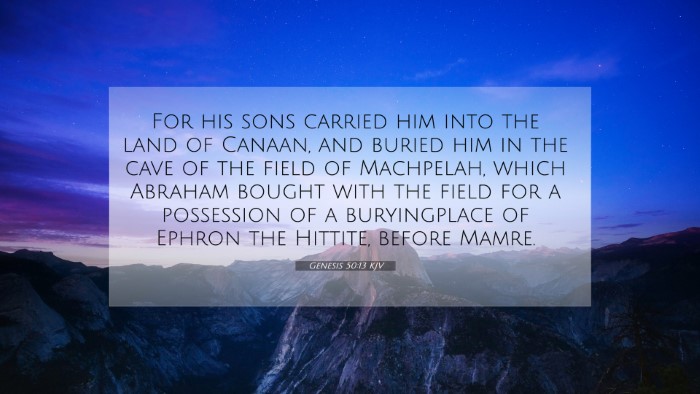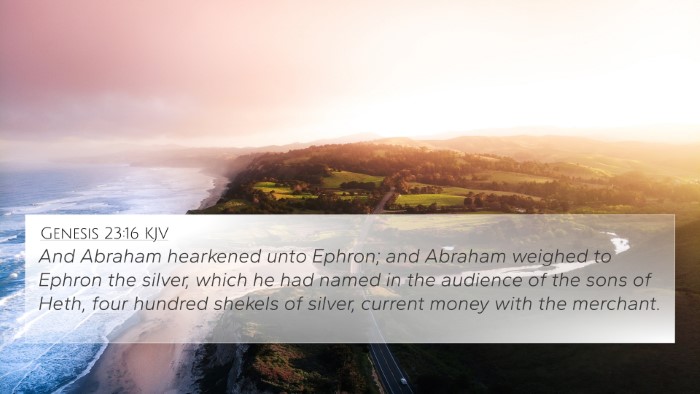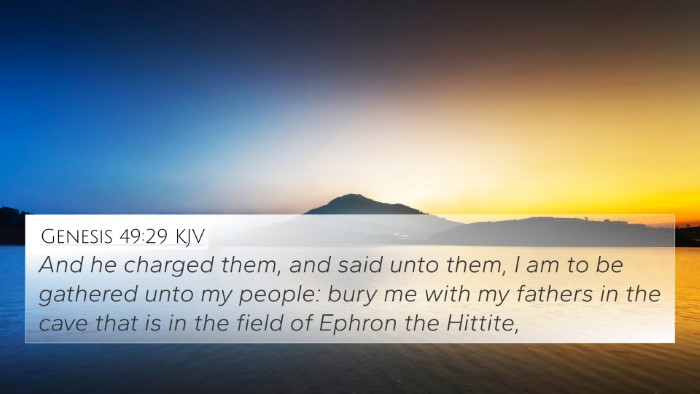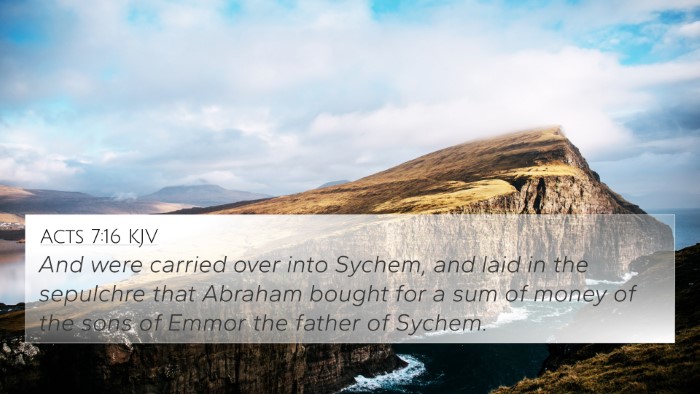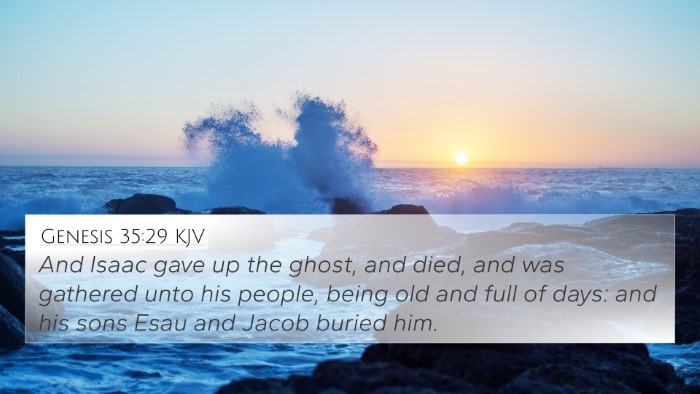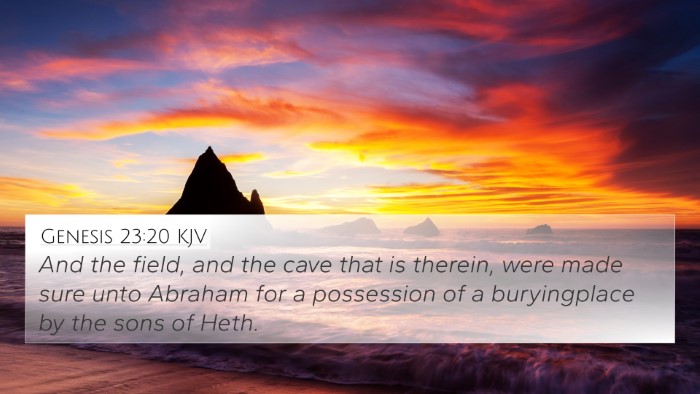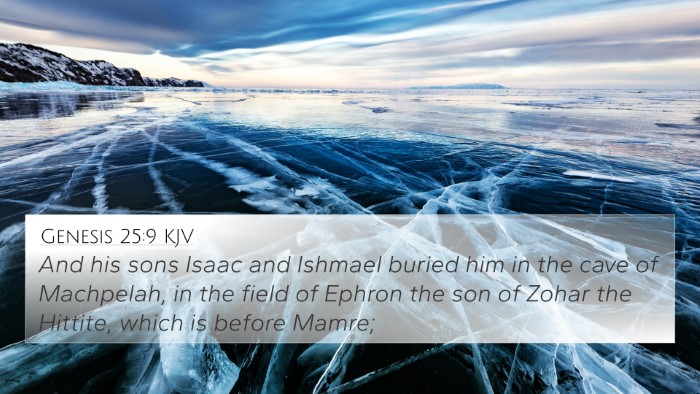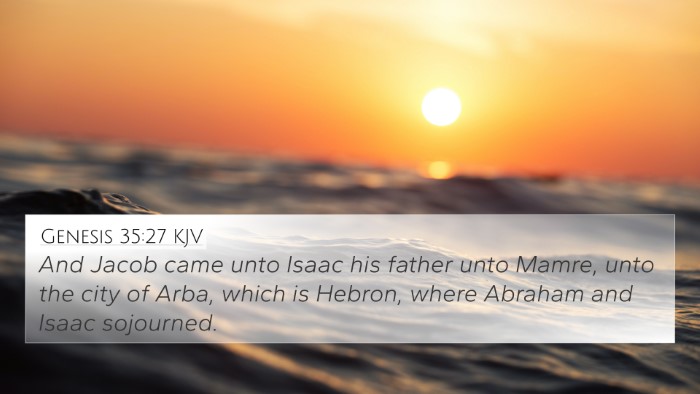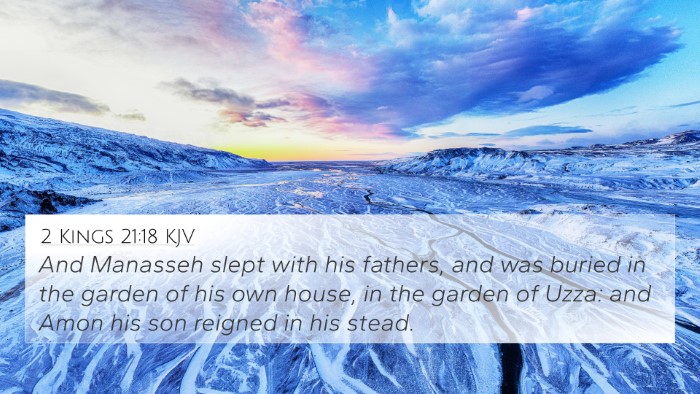Understanding Genesis 50:13
Genesis 50:13 reads:
"For his sons carried him into the land of Canaan, and buried him in the cave of the field of Machpelah, which Abraham bought with the field for a possession of a buryingplace." (Genesis 50:13, KJV)
This verse concludes the account of Jacob's death and highlights the significant event of his burial in the ancestral land of Canaan. The act of carrying Jacob's body back to Canaan is rich in meaning and tradition, emphasizing themes of family, legacy, and divine promises.
Commentary Insights
Matthew Henry: Matthew Henry notes that the burial of Jacob in Canaan represents the fulfillment of the covenant promises made by God to Abraham and his descendants. His return to the land underscores the importance of Canaan as the promised land for the descendants of Jacob. It signifies not just a physical return but a spiritual connection to God's promises, reinforcing the significance of the land in the biblical narrative.
Albert Barnes: Albert Barnes emphasizes the historical aspect of this event, noting that Jacob’s burial in the cave of Machpelah signifies the continuity of the patriarchal line. It is also an act of obedience to God's promises about the land. Barnes draws attention to the implications of this burial in the broader context of Israel's identity, history, and relationship with God, highlighting how these actions foreshadow future events for Israel.
Adam Clarke: Adam Clarke elaborates on the socio-cultural significance of honoring fathers through burial customs. He points out that the mention of the cave of Machpelah as a "possession" indicates that Jacob's burial was not merely for closure but served as a claim to the land, reflecting the enduring promise of God to their forefathers. Clarke's insights emphasize the profound respect given to lineage and heritage depicted in this moment.
Thematic Connections and Cross-References
This verse is a microcosm of larger themes found throughout the Bible. Here are some key cross-references that relate to Genesis 50:13:
- Genesis 23:19 - Details Abraham's purchase of the cave of Machpelah for burial, establishing it as a familial burial site.
- Genesis 28:13-15 - God's promise to Jacob about the land, underlining the significance of the burial site.
- Genesis 35:29 - Refers to Jacob's death and the intimate connection of his family with Canaan.
- Hebrews 11:9-10 - References the faith of Abraham and his descendants in relation to their promise of land, akin to Jacob’s burial in Canaan.
- Acts 7:15-16 - Stephen recounts the history of Jacob, reiterating the importance of family and burial in Canaan.
- Psalm 105:8-11 - Celebrates God’s faithfulness to His covenant promises concerning the land.
- Exodus 13:19 - Moses takes Joseph’s bones, reflecting the collective memory and promises concerning the land.
- John 14:2-3 - Jesus’ words about preparing a place for His followers resonate with the themes of home and belonging present in Jacob’s burial.
- Matthew 8:11 - Jesus speaks of a great banquet in the kingdom, inviting a reflection on earthly promises versus heavenly ones.
- 1 Peter 1:4 - A reminder of an inheritance that is imperishable, connecting with the promise of land and legacy.
Exploration of Key Themes
This passage offers deep insights into themes of covenant and promise, family legacy, and the significance of land. The act of burial is both a practical need and a profound statement of faith, connecting generations and invoking divine promises. Each reference noted above enriches the understanding of this key biblical moment.
Tools for Bible Cross-Referencing
To further explore the connections and implications of Genesis 50:13, one can utilize various tools for cross-referencing:
- Bible Concordance - An essential tool for identifying verses and their connections.
- Bible Cross-Reference Guide - Organizes verses thematically for deeper study.
- Cross-Reference Bible Study - Methodologies for conducting a comprehensive analysis of related scriptures.
- Bible Reference Resources - Various materials can assist in understanding the contextual significance of scripture.
Inter-Biblical Dialogue
Genesis 50:13 serves as a critical point for initiating inter-biblical dialogue, connecting Old Testament narratives to New Testament teachings. For instance:
- Comparing the burial of Jacob with Jesus' burial illustrates the theme of hope in resurrection.
- The connection between Jacob and the future return of the Israelites from Egypt reflects ongoing themes of exile and return.
- Understanding Jacob’s legacy helps interpret Paul’s teachings on inheritance through Christ.
Conclusion
Genesis 50:13 is not merely historical; it embodies profound theological implications that resonate throughout Scripture. By exploring its connections through cross-references and engaging with traditional commentaries, one can gain a richer understanding of God's promises and the foundation of faith represented in the life of Jacob.
